

Kenya Travel & Tourism exceeding global and regional levels in 2018
Travel & Tourism in Kenya grew faster than the regional average and significantly above other economies in Sub-Saharan Africa, according to new research from the World Travel & Tourism Council.
In 2018, Travel & Tourism grew 5.6% to contribute KSHS 790 billion and 1.1 million jobs to the Kenyan economy. This rate of growth is faster than the global average of 3.9% and the Sub-Saharan Africa average of 3.3%.eTN Chatroom: Discuss with readers from around the world:
This makes Kenya the third largest tourism economy in Sub-Saharan Africa after South Africa and Nigeria both of which grew substantially less than Kenya in 2018.
In total, international tourists spent over KSHS 157 billion in Kenya last year, accounting for over 15% of total exports. The largest inbound international markets were the USA (11%); UK (9%); India (6%); China (4%); and Germany (4%). Combined with domestic spending, Travel & Tourism supported 8.8% of the nation’s GDP in 2018.
For over 25 years, the World Travel & Tourism Council (WTTC), which represents the global private sector of Travel & Tourism, has produced the authoritative research on the economic contribution of the sector. This year’s research shows that:
- Travel & Tourism in Kenya grew at 5.6% last year – ahead of the global average of 3.9%
- This contributed 8.8% to Kenya’s GDP, worth KSHS 790 billion (or US$7.9 billion dollars) when all direct, indirect and induced effects are taken in to consideration
- Travel & Tourism is responsible for 8.3% of all Kenya’s employment, or 1.1 million jobs
- GDP contribution is projected to grow by 5.9% in 2019
Speaking from a press conference in Nairobi, Kenya, WTTC President & CEO Gloria Guevara said, “Africa is one of the great success stories of global travel as the second fastest growing region in the world – and Kenya lies at the heart of the region, a popular and renowned destination that has seen huge growth in tourism activity and value over the past year.”
“I would like to particularly acknowledge the vision of President Uhuru Kenyatta and his commitment to Travel & Tourism as a means of driving economic growth and alleviating poverty. The Ministry of Tourism & Wildlife, under the leadership of Cabinet Secretary Najib Balala, must be congratulated for growing tourism at a rate above the global and regional average and for attracting over two million international visitors for the first time in 2018.
Speaking at the event, Cabinet Secretary for Tourism and Wildlife, Hon. Najib Balala elaborated on the gains of the sector and expressed his satisfaction on the overall achievement of this key sector that contributes substantively to the economy.
“The gains of the sector are as a result of co-ordinated efforts between various arms of government, whom the tourism sector has engaged, as well as the concerted efforts in marketing Kenya as a destination of choice,” CS Balala pointed out.
About the World Travel & Tourism Council
WTTC is the body which represents the Travel & Tourism private sector globally. Members consist of CEOs of the world’s Travel & Tourism companies, destinations, and industry organizations engaging with Travel & Tourism.
WTTC has a history of 25 years of research to quantify the economic impact of the sector in 185 countries. Travel & Tourism is a key driver for investment and economic growth globally. The sector contributes US$8.8 trillion or 10.4% of global GDP, and accounts for 319 million jobs or one in ten of all jobs on the planet.
For over 25 years, WTTC has been the voice of this industry globally. Members are the Chairs, Presidents and Chief Executives of the world’s leading, private sector Travel & Tourism businesses, who bring specialist knowledge to guide government policy and decision-making and raise awareness of the importance of the sector.
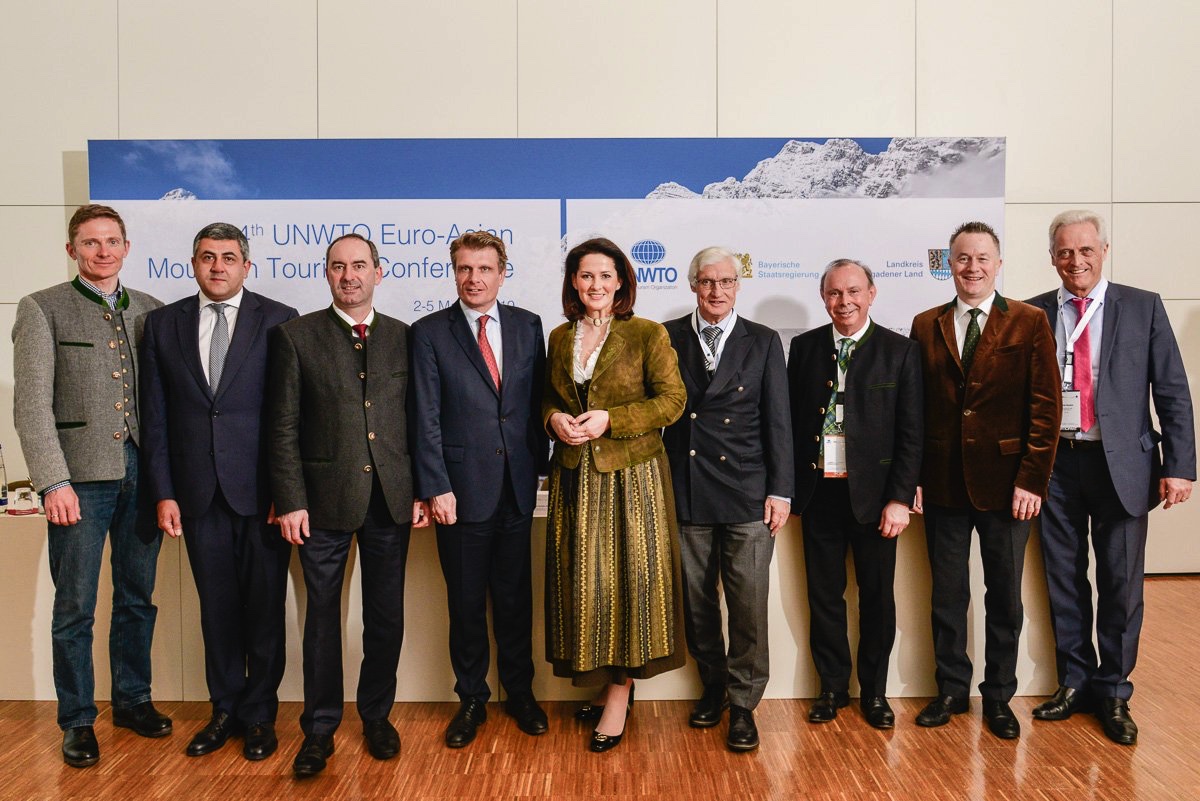
The Future of Mountain Tourism: Sustainability and Innovation
The 4th edition of the UNWTO Euro-Asian Mountain Tourism Conference (2-5 March 2019, Berchtesgaden, Germany) highlighted the need for collective efforts in overcoming current challenges that mountain destinations are facing to adapt to new consumer trends and market changes, to address seasonality by diversifying tourism products in an innovative manner while protecting natural and cultural resources.
Organized jointly with the Berchtesgadener Land Region, with the support of the Bavarian Ministry of Economic Affairs, Regional Development and Energy and the German Federal Ministry for Economic Affairs and Energy, the UNWTO Euro-Asian Mountain Tourism Conference brought together more than 270 participants from 30 countries.
Opening the event, UNWTO Secretary-General, Zurab Pololikashvili, recalled that mountains entail many opportunities to promote inclusion, regional development and better lives through tourism. He also stressed that mountain tourism needs to be planned, developed, governed and managed in a sustainable manner.
Thomas Bareiss, Parliamentary State Secretary of the Federal Ministry for Economic Affairs and Energy and Federal Government Commissioner for Tourism stated that “Tourism is a major factor of the economy in the Alpine region. I am glad that the World Tourism Organization, a Specialized Agency of the United Nations, is holding a conference in this beautiful region of Germany for the first time. The fourth Euro-Asian Mountain Tourism Conference in Berchtesgaden will deliver a significant boost to mountain tourism and build a bridge between Europe and Asia. I am convinced that innovation, digitisation and mobility are some of the key issues for tourism going forward. I therefore welcome this opportunity for people from all around the world to share their ideas – in the interest of progressive tourism in our mountainous regions.”
Hubert Aiwanger, Deputy Bavarian Minister-President and State Minister of Economic Affairs, Regional Development and Energy emphasized that “Tourism is an important sector in Bavaria‘s economy. Last year we welcomed over 39.1 million guests, among them nearly 10 million from abroad. Overall, we recorded almost 100 million accommodations. Hosting this year‘s UNWTO in Berchtesgaden gives us a chance to show the diversity and quality of Bavaria’s tourism. Both UNWTO and Bavaria stand for an environmentally friendly and sustainable tourism strategy. Thus, Bavaria is the right place for this important conference“.
The local host of the conference, district Chief Executive of the Berchtesgadener Land, Georg Grabner, was very pleased “that that the world of tourism gathers in Bavaria, here in Berchtesgaden. With the Berchtesgaden National Park with Watzmann mountain and lake Königssee and as a UNESCO-Biosphere-Reserve we focus strongly on sustainability, especially in terms of tourism. I wish all visitors of the UNWTO-conference a pleasant stay with interesting impressions in the middle of the magnificent mountain scenery of the Berchtesgadener Land.”
Conducted by the Editor in Chief of National Geographic Germany, Jens Schröder, the conference combined a series of six panel debates and four lectures steered by 16 international speakers from Europe and Asia. Sustainability, digitalization and mobility, the diversification of mountain destinations in segments such as culture, health and sports and the pressing need of investments for sustainable infrastructure and innovation in product and marketing, were the main issues discussed at the conference.
All these themes will be taken forward to the next World Congress on Snow and Mountain Tourism in 2020, bi-annually held in Andorra.
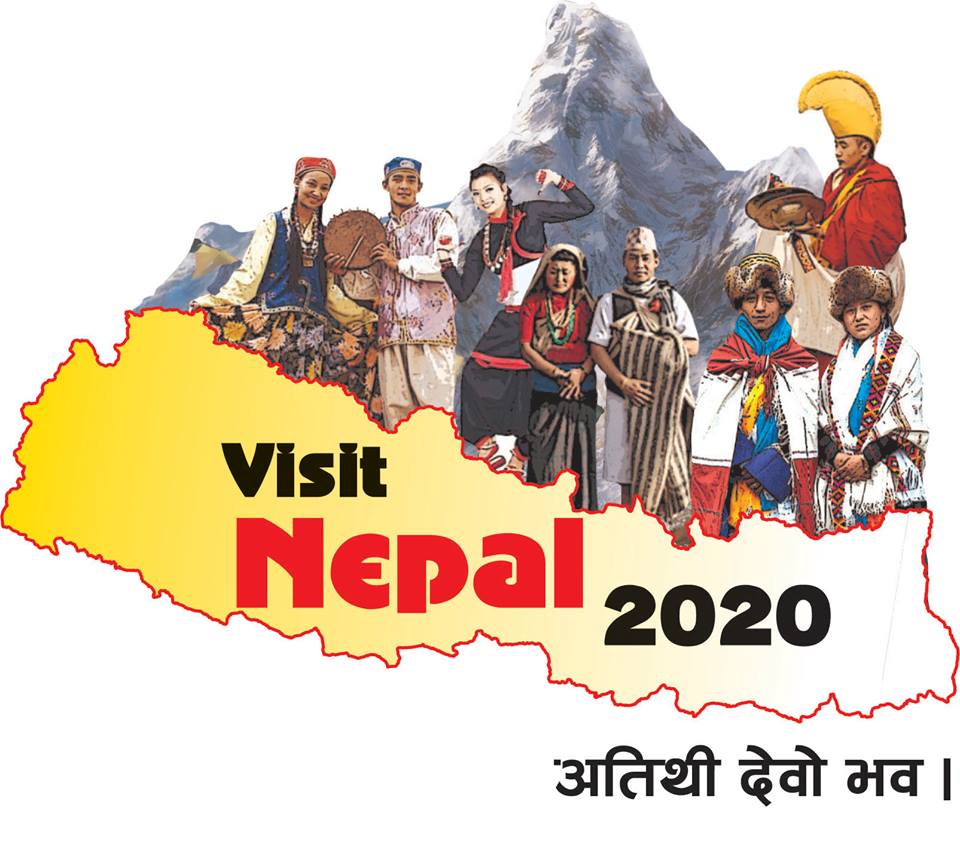
Visit Nepal 2020 Launch to Honor the Life of a Tourism Hero
Nepal is known as a country of beauty and resilience when it comes to the travel and tourism industry. Nepal is also known to have some of the most dedicated people running their nations tourism industry. Many of them will be attending ITB travel trade show in Berlin from March 6-10 to celebrate one of their own tourism hero, the late Nepal Minister for Culture, Tourism, and Civil Aviation, Rabindra Adhikari.
The Nepal Tourism Board in cooperation with the Nepal Embassy in Berlin has planned a launch event of “Visit Nepal 2020” at a VIP dinner on March 7 on the sidelines of ITB and organized by the eTN Corporation.
There will be 252 VIPs in attendance, including several ministers of tourism including Jamaica Tourism Minister Edmund Bartlett, who is the person behind the global tourism resilient initiative. There will be ambassadors, the former UNWTO secretary general Taleb Rifai, top Nepal travel suppliers (buyers and sellers), and media from around the world who have registered to attend.
The ITB Launch for Visit Nepal 2020 will be dedicated to the late Nepal Minister for Culture, Tourism, and Civil Aviation, Rabindra Adhikari.

He was instrumental in the finalization of “Visit Nepal 2020” and had been working endlessly till last week to make this important milestone a success.
The late Nepal Minister for Culture, Tourism, and Civil Aviation, Rabindra Adhikari was to attend the dinner in Berlin, but less than a week before the launch, he passed away in a tragic helicopter accident after visiting a new airport project and a temple in Southern Nepal.
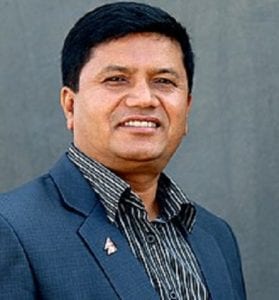
Nepal Tourism officials put great thought into whether or not they should move forward with the event at ITB or if it would be appropriate to delay due to the Minister’s death. After careful consideration, it was decided that the hard work of their late minister would be his best legacy, and they came to the consensus to go forward with the “Visit Nepal 2020” event on Thursday.
In honor of Minister Adhikari’s vision, this planned evening of culture and Nepalese cuisine will now also be an evening to gather and remember the late Minister Rabindra Adhikari with respect for his tireless efforts and gratitude for his foresight for the future of Nepal’s tourism industry.
After taking the helm at the Ministry in February of last year, Adhikari, 49, had undertaken a series of policies to reform Nepal’s civil aviation sector. He took prompt steps to improve conditions at Nepal’s only international airport, Tribhuvan International Airport, and pursued the reactivation of several domestic airports. Adhikari also held several rounds of talks with the European Aviation Safety Agency (EASA) which recognized some of the steps he had taken on the safety of Nepal travel.

The year 2020 was chosen as the national tourism year of Nepal after the year 2011 which was the primary authority tourism year of the new Federal Democratic Republic of Nepal. The government and tourism department of Nepal authoritatively reported that Nepal will take the year 2020 as “Visit Nepal 2020,” a year committed to the tourism industry of Nepal with the vision of making a reasonable brand picture of Nepal as a travel and vacation destination. This vision supports the tourism foundation of Nepal, enhances the growth of the nation’s tourism industry, and enriches local tourism as a supportable industry.

Beginning in 2016 and 2017, the government began making arrangements and laying a foundation to formally initiate the open connection program for “Visit Nepal 2020.”
The legislature aims to accommodate more than one million visitors amid the year of this important Tourism program.
For more information on the launch event, go to buzz.travel/nepal.
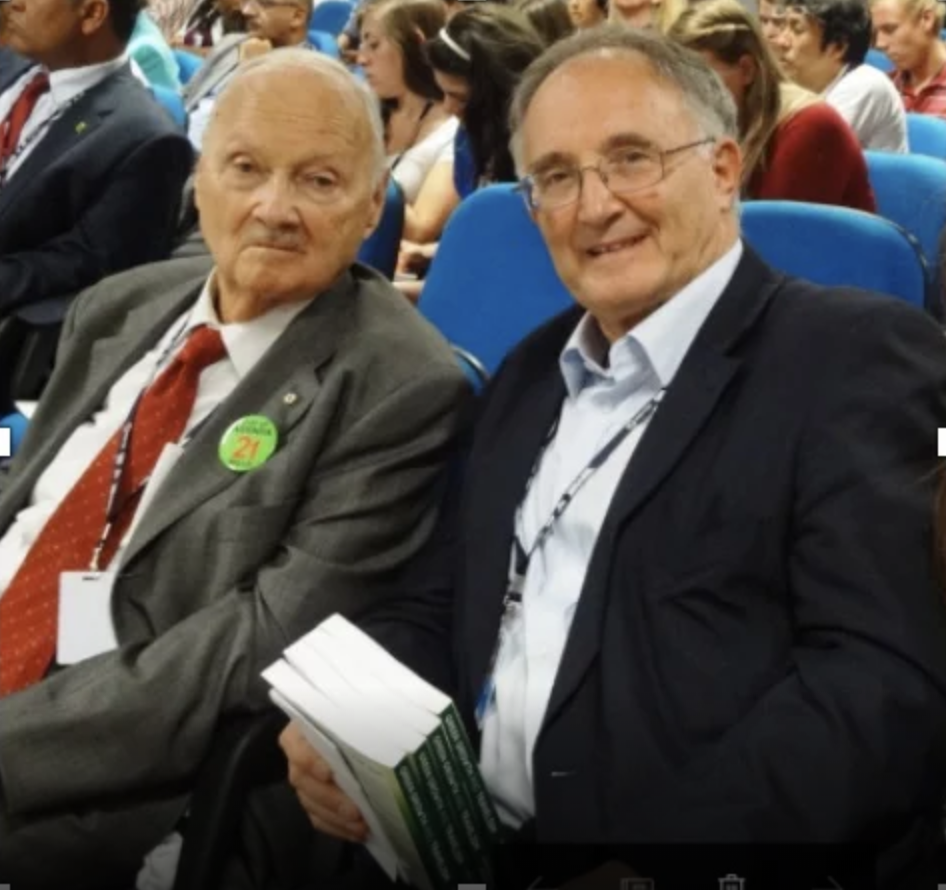
A Plan For Our Kids: Climate Friendly Travel
Deep down, most people know, Travel & Tourism must respond to the eXistential challenge of Climate Change, must fully align with the Paris Agreement targets, and must play a leading role in the Green New Deal paradigm shift. Our sector is a central part of the human activity – social, economic and environmental: its influence and impact are growing: its role in development is fundamental. Mobility is a part of our DNA.
But we are in the middle of a massive “New Climate Economy” transformation. It will affect all consumption, all supply, and all investment on the planet, as well as a shift to the circular economy and nature-based solutions. The scientists say we have about a decade to get our house in order and keep global temperatures at tolerable levels for humanity. If we don’t fix it, our grandkids will freeze or fry.
Many will say that we are acting already – conferences, declarations: observatories: pledges: certification: awards: offsets: clean energy technology and so much more. We have WTTC linked to UNFCCC, IATA & ICAO taking care of aviation and CLIA, WOC & IMO looking after cruises. We’ll also get a huge boost from societal shifts to low carbon lifestyles, smart cities, electric transport: synthetic fuels: green buildings, satellite or big data monitoring, AI, IOT and the like.
At the same time countries, cities, businesses, and consumers will deliver an increasing number of national and local regulations as states take steps to ensure that the SDGs and Paris targets are achieved. All this change will intensify under the dictates of a progressively tightening Paris climate regime. Surely this will be enough?
I suggest it will not. Our world is just beginning to understand the impact of extreme weather, melting ice caps, warmer oceans, severer drought, fiercer forest fires, disrupted supply chains, and migration mayhem. The harsh reality is we still need to move further, faster and more strategically on Climate Response in the coming decade.
Tomorrow’s leaders must have the right mindset to deal with the dynamic disrupted world of tomorrow. The ingenuity to conceive and build responsive Travel & Tourism systems for liveable, as well as enjoyable destinations. And that means starting now and accelerating to stay on the intensifying Paris curve.
SUNx – a legacy program for Maurice Strong, the father of sustainable development – has crafted the start of a response. “Plan For Our Kids” will create 100,000 STRONG Climate Champions in all UN States by 2030. Not to replicate or substitute work done by committed industry or government bodies dealing with Climate response – we will need all of these. There will be no magic bullet
Our contribution is to help prepare the next generation of decision makers, as well as help companies and communities connect with them. It’s a low cost, CSR linked program, which will support nextgen leaders with lifetime learning, from school through graduation and it will teach Climate Friendly Travel ~ measured to manage: green to grow and 2050 proof to innovate. It will provide cloud-connected online education, analytics and a heavy emphasis on innovation, to spread best practice around the system.
“Plan For Our Kids” will help keep a central focus on climate resilience for destinations, companies, value chains and travelers themselves. It will focus on communities because that’s where lasting impacts are made and it’s where ultimate lifestyle decisions rest. It will be expanded through SDG 17 Partnerships for change.
To take this plan to global scale in the 2030 timeframe requires us to find a pioneer group of like-minded industry and government partners, prepared to commit to a real strategy for a real existential climate emergency. Just 50 STRONG Climate Champions in each State, every year for the next decade will see a global movement of 100,000 by 2030. They will be from the Greta Thunberg generation. They will have the same vision, commitment and tenacity. They will help deliver Climate Friendly Travel.
If you share this view and want to be a part of the change, please contact Geoffrey Lipman at [email protected] or visit our website www.thesunprogram.com
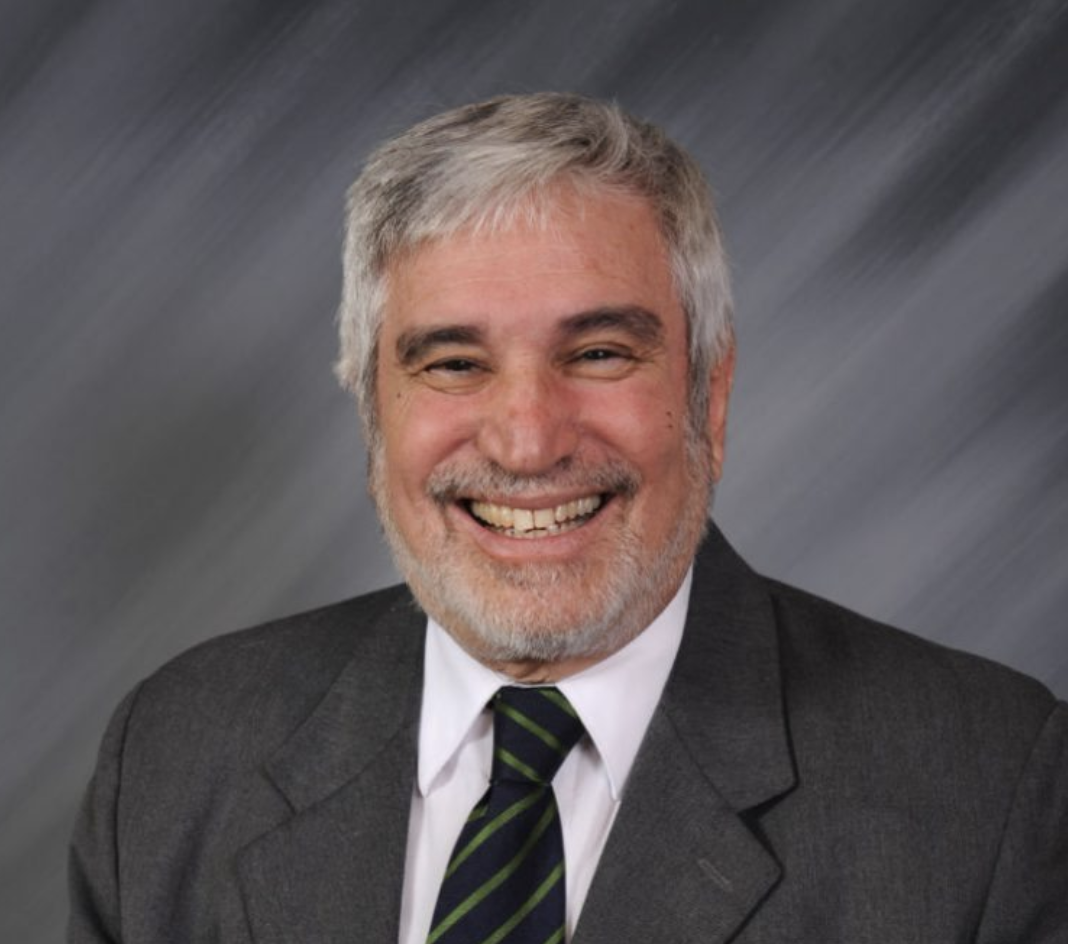
Travel Marketing To and Protecting Visiting Children
One of the most difficult segments of the tourism industry to which to market protect the children or young adult segment, In reality, this segment breaks down into at least four sub-segments, and each of these has its own challenges and opportunities.
Although in most nations the law defines a child as anyone who is not an adult (under 18 years of age) from the perspective of tourism there are major differences between an infant and a teenager. These differences manifest themselves in not only how we market to them but the products that we offer. One way to analyze this multivariate market is to divide the child/young adult tourist segment into categories such as:
- Infant/diaper travel (newborn to 2 years of age)
- Young children travel: (2-10 years of age)
- Pre-adolescent travel: (10-13 years of age)
- Adolescent travel: (13-17 years of age)
These subdivisions are only approximations and in reality, the travel sociological patterns of each group merge one into the other and also differ one from the other. They are used here merely as divisions of convenience.
The Child/Young adult/Family travel market is a large one. According to the (US) Family Travel Association it is estimated that in the United States (and we can assume the same holds true for many other nations) that family travel potentially comprised up to 35% of the total travel market. Additionally, most of this travel is discretionary travel and often families with young children and adults tend to spend more during their trip than do single travelers or couples traveling without children, According to the US Family Travel Association there are four key factors that are driving this segments of the market’s growth. They are:
- Busy parents want to spend more quality time with their children and travel is one way in which they can accomplish this goal
- Travel allows parents to provide educational and life-enhancing experiences and learning in an unstructured and non-judgmental setting
- There is an ever-expanding number of family travel products ranging from lodging to restaurant menus and children’s discounts
- Grandparent-grandchildren travel produces long-term memories across generations.
Although few travel destinations expressly go after children as the motivator for travel (exceptions to this rule are locations such as: Anaheim, CA, Orlando, Florida, or Disney Paris) children play a large role in travel and in travel destinations decisions. For example:
- Market fragmentation. The under 18-year old market is not only expansive but highly diverse. The needs of a parent traveling with an infant are different from a parent traveling with a teenager. If marketing to a portion of the family travel market, think through which segment is the priority and then market to that segment.
- Negative motivators. With a few exceptions, most travel decisions are not made specifically at the child’s request. However, children can complain enough that parents choose not to go to a specific location. Destinations might not attract visitors due to their child-appeal but they can lose visitors due to their lack of child-appeal.
- Food dislikes. Children, especially on vacation, can be a challenge to feed. Often they reject fancy foods and fine dining. Tourism destinations that seek “family markets” must be sure to offer a variety of “simpler” or basic foods at portion control quantities and at affordable prices
- Noise control. Children can be noisy. Tourism areas that seek to be child-friendly need to provide spaces where children are not expected to speak in moderate tones and will not be disturbing to other guests. Children’s noise may be seen as either cute or annoying depending on the location and situation into which they are placed.
- Centers of Lodging Children; Tourism family destinations need to think through the lodging challenges. These range for rails around swimming pools in the case or older children to easily accessible diaper changing areas. Lodging locations need to offer a variety of unique services from childcare to bottle warmers.
- Cultural events: Children often complain of boredom and push parents to leave a locale at an earlier time than the parents might prefer. On the other hand, if children are not exposed to museums, plays, or concerts they will never learn. Tourism destinations that seek the family market may want to consider not only matinees but also half –performances or other methods to deal with shorter attention spans.
To help you market to this important segment of the world of travel and tourism, Tourism Tidbits offers the following suggestions.
-Understand what drives your segment of the child/young adult travel market. Because this is such a wide segment of the travel market, no one destination can appeal to all of it. Segment your market by attractions, price and offerings and then appeal to the part of the youth market that matches your reality.
-Young Adult and Children’s tourism is multi-faceted. Some of the more popular sports for children are amusement parks, seaside vacations, television-inspired vacations and school cultural experiences. The latter is important because it occurs outside of the family and usually has a prepaid package as part of the experience. The school travel tourism market often has not been recognized as a major source of income by the tourism industry.
-Do not overlook multi-generational travel. Grandparents love to spoil grandchildren and recent retirees might be the wealthiest brackets of retired people in history. Young grandparents are still well enough for physical activity and wealthy enough to spoil the next generation. Develop special grandparent/grandchildren packages. Offer hotel rooms that provide both privacy and easy access and develop food and eating schedules around young travelers’ needs.
-See and market to children as sophisticated consumers. Children watch television and are Internet savvy. Offer well thought through services that appeal to specific age groups. Remember one size does not fit all. As children are ever more exposed to a computerized world they are “aging” faster and are more aware of everything from sex to politics at ever-younger ages.
Dr. Peter Tarlow is president of Tourism & More and head of the eTN Travel Security and Certification program. More information: www.certified.travel
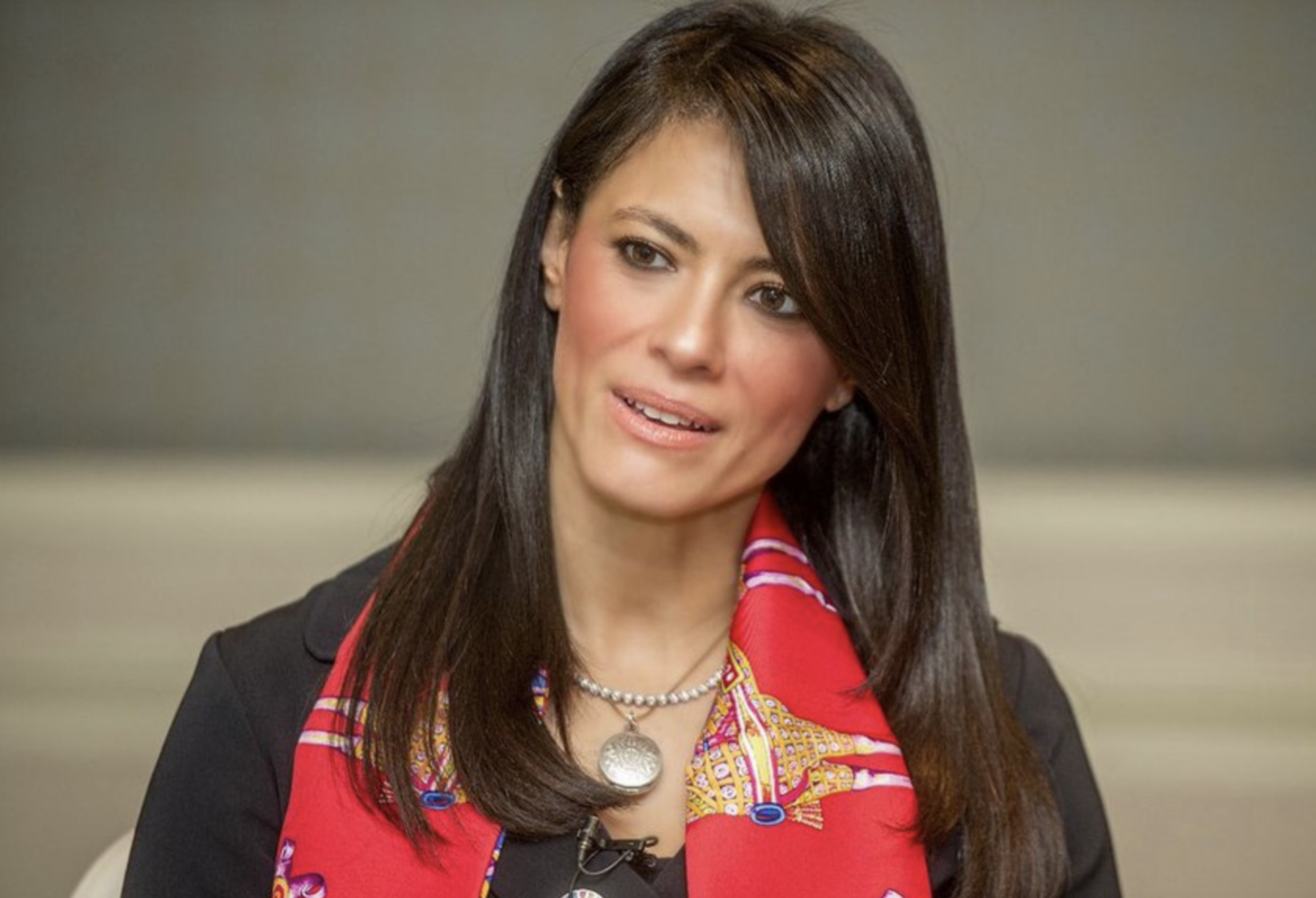
IIPT India Announces the Winners of the 4th Celebrating Her awards at ITB Berlin
For the fourth consecutive year ITB Berlin will play host to the International Institute for Peace – India’s (IIPT India) Global Awards for Empowered Women in Tourism – “Celebrating Her.”
The IIPTI Global Awards, “Celebrating Her” are intended to acknowledge and felicitate exceptional women in the fields of travel, tourism and hospitality; individuals with a clarity of vision and mission who understand and believe that tourism, perhaps the biggest industry in the world, could become the first global peace industry and who have committed themselves to fostering the tourism business as a vehicle for peace.
Five exceptional women from the world of tourism will be felicitated at the 4th edition of the Awards for their achievements and for their contribution to promoting tourism as a vehicle for peace and understanding.
The Awards will be held from 1400 to 1500 at the Palais am Funkturm (Hall 19) on the ITB fairgrounds on Thu 07 March and will be followed by a networking reception from 1500 to 1530.
Key speakers at the awards include Dr. Taleb Rifai, former Secretary General of UNWTO (2010 – 2017), H.E. Eliza Reid, First Lady of Iceland, The Hon. Marie-Christine Stephenson, Minister of Tourism and Creative Industries, Haiti and others.
The Celebrating Her award winners for 2019 are:
H.E. Rania al Mashat – Minister of Tourism for Egypt for Tourism Policy and Leadership
Helen Marano – Founder & President, Maranao Perspectives for Building Global Alliances that promote Tourism as a Force for Good
Mechtild Maurer – General Director, ECPAT Germany for promoting Socially Responsible Tourism
Jane Madden – Managing Partner, Global Sustainability & Social Impact, FINN Partners for Sustainability and promoting Corporate Social Responsibility
Hon. Elena Kountoura – Minister of Tourism for Greece for Tourism Strategy and Resilience
Commenting on the Awards, Ajay Prakash, President of IIPT India says, “Each one of our winners this year is a champion; these ladies have reached the top of their chosen paths in tourism and are an inspiration. The Awards are being held on the eve of International Women’s Day but our champions need to be felicitated every day of the year.
Gender equality, which is a critical part of the United Nations SDGs, is intrinsic to IIPT’s global aims and objectives and integral to fostering peace. Through the Awards we’re aiming to create a network of powerful women across the world who would serve as role models and mentors while they represent IIPT as our Global Ambassadors of Peace.”
Dr. Talib Rifai, former Secretary General of UNWTOP and Chair of IIPT’s International Advisory Board says, “Celebrating Her is a timely initiative. Travel and tourism has become today’s grand human activity, greatly affecting the life and livelihood of people and communities and in turn, Peace and Sustainable Development all over the world.
Leaders in travel and tourism should be the first to recognize that we cannot any more go about life, progress, development and building peace without HER and without reintegrating half of the human community in advancing towards our goals. It is, therefore, only natural that IIPT India, the country that is standing up bravely to achieving our goals, picks up the issue on behalf of all of us – To state clearly that, CELEBRATING HER IS CELEBRATING US”
Rika Jean-Francois, CSR Commissioner for ITB Berlin – co presenters of the Awards, said “ ITB is extremely delighted to have partnered with IIPT India to give out these important awards. There are so many amazing women in the tourism industry who are doing an excellent job, committed to improve conditions, who are often never seen, never officially recognized. We are proud to foster change.”

5th UNWTO World Forum on Gastronomy Tourism in San Sebastián: Job Creation, Entrepreneurship and Development
The World Tourism Organization (UNWTO) and the Basque Culinary Center (BCC) are co-organizing the 5th UNWTO World Forum on Gastronomy Tourism, on 2-3 May 2019 in San Sebastián, Spain. The Forum is supported by the Ministry of Industry, Trade and Tourism of Spain, the Basque Government, the Provincial Council of Gipuzkoa and the City Council of San Sebastián, a city that has hosted the Forum every other year since its first edition, in 2015.
The main content and objectives of the Forum were presented at a press conference at the UNWTO headquarters, presided by UNWTO Secretary-General Zurab Pololikashvili, Spain’s Secretary of State for Tourism, Isabel Oliver, and the Director of the Basque Culinary Center (BCC), Joxe Mari Aizega. They were accompanied by the Deputy Minister of Tourism and Trade of the Basque Government, Isabel Muela, the Deputy for Culture, Tourism, Youth and Sports of Gipuzkoa, Denis Itxaso, and the First Vice-Mayor of the City of San Sebastián, Ernesto Gasco, representing the key partners for the holding of this international event.
Through the World Forum on Gastronomy Tourism, the UNWTO and the Basque Culinary Center aim to promote the exchange of experiences among tourism and gastronomy experts, and identify good practices. The objective is to promote gastronomy tourism as a factor for the sustainable development of countries, by virtue of its close links with local products and culture. Consequently, it is a driver of professional training, job creation, and community development. This focus is the reason behind the partnership between UNWTO and the Basque Culinary Center.
Thus, the 5th Forum will analyse the skills and knowledge that gastronomy tourism will require in the future and highlight gastronomy as one of the main motivations for travel. In addition, the event aims to identify favourable frameworks that promote entrepreneurship and the creation of ecosystems that, in turn, stimulate connections among emerging companies throughout the gastronomy tourism value chain. The Forum will also address the potential of gastronomy tourism to promote better inclusion of disadvantaged groups and raise the quality of work environments. It will address some of the main challenges facing the sector, such as the gender wage gap, the employment of persons with disabilities, youth unemployment and the problem of seasonality, among others.
Entrepreneurship and sustainable development
The Forum will serve as the setting for the announcement of the winning startup of the 1st Global Gastronomy Tourism Startup Competition, launched with the support of Promperu. To date, the competition has attracted gastronomy tourism startups from 65 countries around the world, united by their commitment to the Sustainable Development Goals. The deadline for the submission of entries is 5 March 2019.
The winning startup will be invited to take part in the Culinary Action accelerator programme during the second semester of 2019, where it will benefit from the mentoring and advice of the network of experts of BCC Innovation, a workspace in LABe’s Digital Gastronomy Lab project incubator, and a grant of up to 5,000 euros to cover the cost of accommodation and travel during this period.
The five finalist startups will be announced on 1 April and will be invited to present their projects to the sector’s investors during the Forum, as well as at the Ibero-American Gastronomy Fair (Miami, USA, 9-11 May 2019).
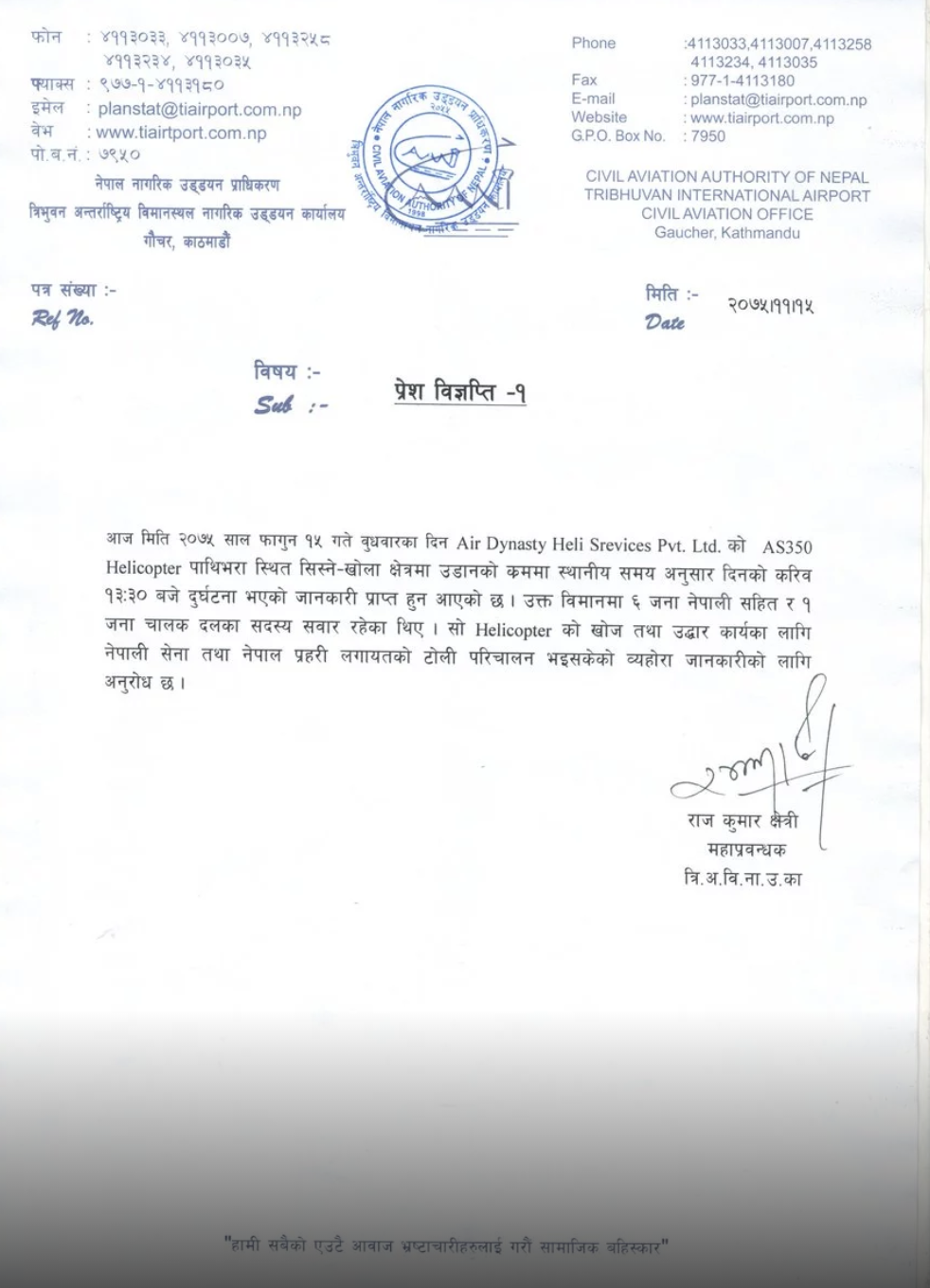
Nepal Tourism Minister Rabindra Adhikari among dead: What happened?
The Government of Nepal issued a statement on the crash of an Air Dynasty helicopter that killed Nepal Tourism and Civil Aviation Minister Rabindra Adhikari today together with 6 more, including the owner of Air Dynasty.
The helicopter went to Chuhandanda in Tehrathum district during beautiful weather. The minister and his team were to inspect a site for a new airport project followed by a stop at Parthivara temple, Taplejung, Nepal. The helicopter got caught in bad weather on its return to Kathmandu.:
The government statement was released to Nepal media and reads:
“An Air Dynasty Heli Services Pvt. Ltd’s AS 350 Helicopter crashed in Pathivara ( North Eastern Nepal) at 1330 hrs (NST), Wednesday, February 27.
As per the information received, there were 6 passengers and 01 Captain ( all Nepali Citizen) on board. The rescue and search team of Nepal Army and Police have been activated. ”
Further government statements assume all passengers and the pilot died in the crash.
The minister was supposed to leave for Berchtesgaden, Germany to attend the 4th UNWTO Euro-Asian Mountain Tourism Conference on March 2.
After March 2 the minister was scheduled to attend ITB Berlin, the largest travel industry trade show in the world. He was to launch the Nepal 2020 year at a VIP dinner in Berlin on March 7 and organized by eTN Corporation, owner of this publication.
Rabindra Prasad Adhikari was born on May 5, 1969. He was a member of the Nepal Communist Party and the current Minister of Culture, Tourism and Civil Aviation as of Mach 16, 2018. He was the Kaski District secretary of the party.[In the 2008 Constituent Assembly election, Adhikari was elected from the Kaski-3 constituency, with 13,386 votes. In the 2013 Constituent Assembly election, he was re-elected from the Kaski-3 constituency, with 15456 votes. Since 2013 he was Central Committee member of CPN UML and was President of Development Committee of Legislative Parliament of Nepal. He was also author of the book (Constituent Assembly, Democracy and Re-structuring) and (Samriddha Nepal).
He was elected as Member of Parliament from the election held on 26 November 2017.
Air Dynasty Heli service Pvt Ltd. was established in 1993. Air dynasty’s fleet includes 5 Ecureuil As350 Series Helicopters. Air dynasty is the oldest among a few operators of light helicopters and the operators of Ecureuil helicopters in private aviation in Nepal.
These helicopters are certified to fly up to 23000 ft. AMSL. Each aircraft can normally accommodate 5 adult passengers subjective of altitude and temperature at the landing site. Expert key professionals managing and operating at air dynasty have extensive experience of managing aviation operation in national and international civil aviation.
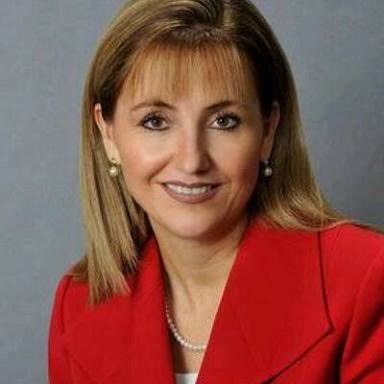
Travel & Tourism continues strong growth above global GDP
The global Travel & Tourism sector grew at 3.9% to contribute a record $8.8 trillion and 319 million jobs to the world economy in 2018. For the eighth consecutive year, this was above the growth rate of world GDP.
This is according to the World Travel & Tourism Council’s (WTTC) annual research into the economic impact and social importance of the sector. The research conducted over the last 25 years by WTTC, which represents the global private sector of Travel & Tourism, shows that Travel & Tourism in 2018:
- Contributed $8.8 trillion to the global economy
- Grew faster than the global economy for the eighth successive year (3.9% for Travel & Tourism versus 3.2% for global GDP)
- Generated 10.4% of all global economic activity
- Contributed 319 million jobs, representing one in ten of all jobs globally
- Is responsible for one in five of all new jobs created in the world over the last five years
- Is the second-fastest growing sector in the world, ahead of Healthcare (+3.1%); Information Technology (+1.7%) and Financial Services (+1.7%) behind only Manufacturing, which grew by 4%
- Increased its share of leisure spending to 78.5% (from 77.5% in 2017) meaning 21.5% (22.5% in 2017) of spending was on business
- Increased its share of spending from international tourists 28.8%, up from 27.3% in 2017. This means that 71.2% of spending comes from domestic tourists.
Gloria Guevara, WTTC President & CEO, said: “2018 was another year of strong growth for the global Travel & Tourism sector reinforcing its role as a driver of economic growth and job creation. For the eighth consecutive year, our sector outpaced growth in the wider global economy and we recorded the second-highest growth of any major sector in the world.
“In 2018, Travel & Tourism generated $8.8 trillion and supported 319 million jobs across the world. Yet again, this proves the power of Travel & Tourism as a tool for governments to generate prosperity while creating jobs which particularly support women, youth and other, often marginalised groups of society. In fact, Travel & Tourism now accounts for one in five of all new jobs created worldwide and is forecast to contribute 100 million new jobs globally over the next ten years, accounting for 421 million jobs by 2029.”

US travel sector retains #1 status and grows despite trade tensions
The United States retained its status as the world’s largest Travel & Tourism economy despite a standstill in international visitors from China, according to major new research released today by the World Travel & Tourism Council (WTTC).
The research shows that the United States remained the biggest Travel & Tourism market in the world in 2018 with the sector contributing almost $1.6tn to GDP. This translates to 7.8% of US GDP with the sector growing by 2.2% (accounting for inflation) last year.
After registering average annual growth of 23% over the previous decade, Chinese travel to the US was flat last year partly due to trade tensions between the two countries.
International visitors from China account for 4% of total US visitors but 11% of all spending, demonstrating their economic importance to the country.
WTTC President & CEO, Gloria Guevara, said: “The US continues to be the largest travel economy in the world registering growth of 2.2% last year. However, after recording ten years of stellar growth, international visitor numbers from China were flat year on year, caused in part by the deteriorating trade relations between the two countries. Given the economic importance of Chinese visitors, any thawing in the trade relations between the two countries would have a positive effect for the wider US economy.”
For over 25 years, WTTC, which represents the global private sector of Travel & Tourism, has produced the authoritative research on the economic contribution of the sector across 185 countries and the impact of employment.
This year’s analysis for the United States shows that the direct, indirect, and induced impact of Travel & Tourism accounted for:
- $1,595 billion, 7.8% of United States GDP (2.2% real annual increase)
- 15.6 million jobs
- $198.8 billion in spending by international visitors (0.9% annual decrease)
Guevara continued: “Travel & Tourism, has been a consistent driver of employment in the United States. The sector creates jobs, drives exports and generates prosperity. Its continued resilience and our projections for growth serve to highlight the importance of the industry to the US economy. The US is the biggest travel market in the world, the sector is integral to the country’s broader economic performance and must be prioritised.”
To strengthen the US travel sector and ensure it remains both robust and competitive, WTTC recommends that US policymakers focus on:
- Preserving Brand USA: We support the renewal of Brand USA this year—a program with broad bipartisan support—beyond its current 2020 authorisation to continue marketing the US as a premier global Travel & Tourism destination.
- Expanding, rebranding the US Visa Waiver Program: With its bilateral security and travel facilitation benefits, we support the rebranding of the VWP as the “Secure Travel Partnership Program” and its expansion beyond the current 38 participating nations to other qualified countries.
- Modernising US airport and other infrastructure: WTTC recognises the importance of world-class Travel & Tourism infrastructure – particularly airports.
- Biometric passenger identification: WTTC recognises and supports the biometric passenger identification and processing initiative, an area where the US is leading the world. The work being undertaken by US Customs and Border Protection for the roll-out of a seamless traveller experience is helping us to transform the passenger experience, enhance security and create jobs.
